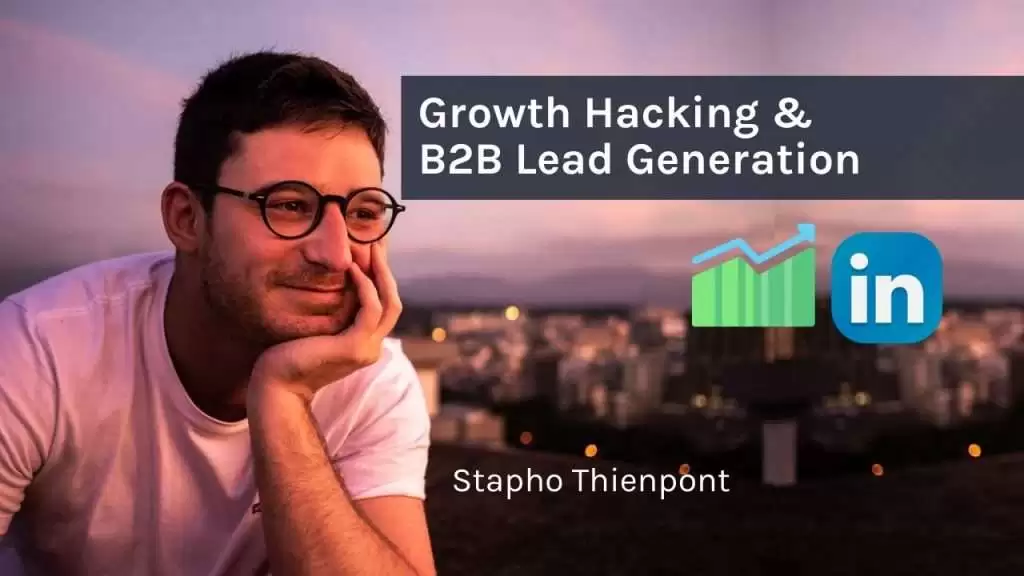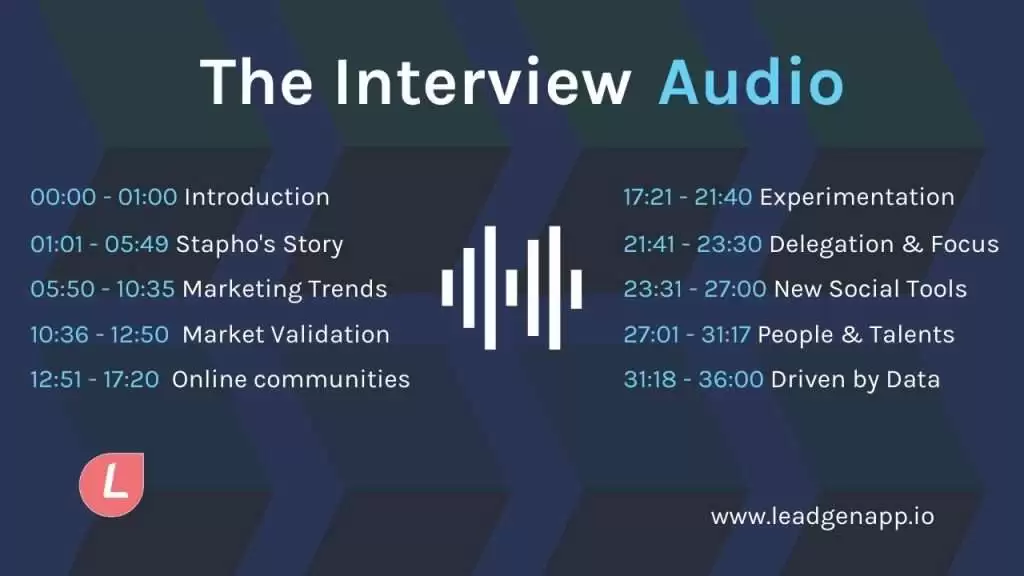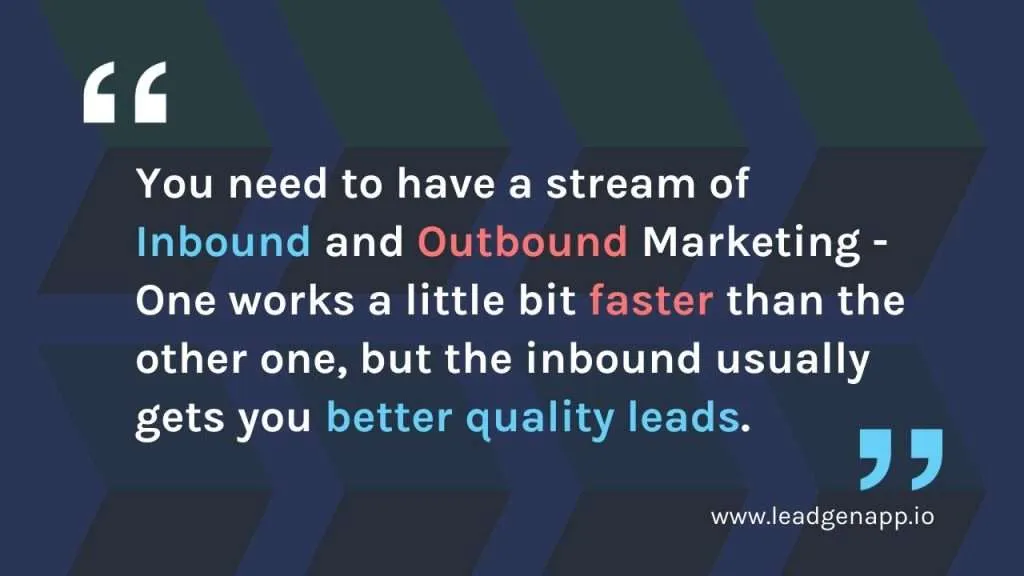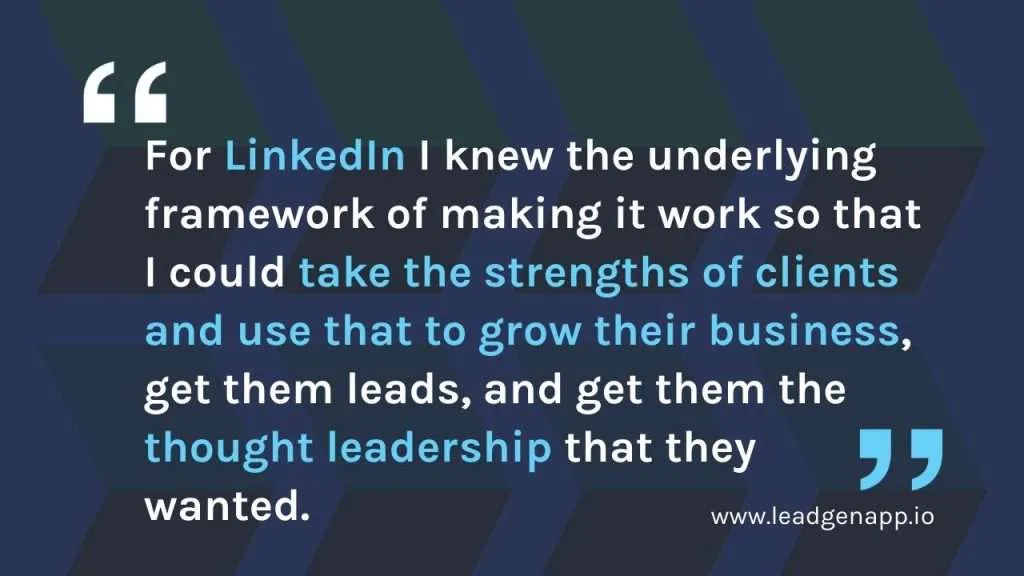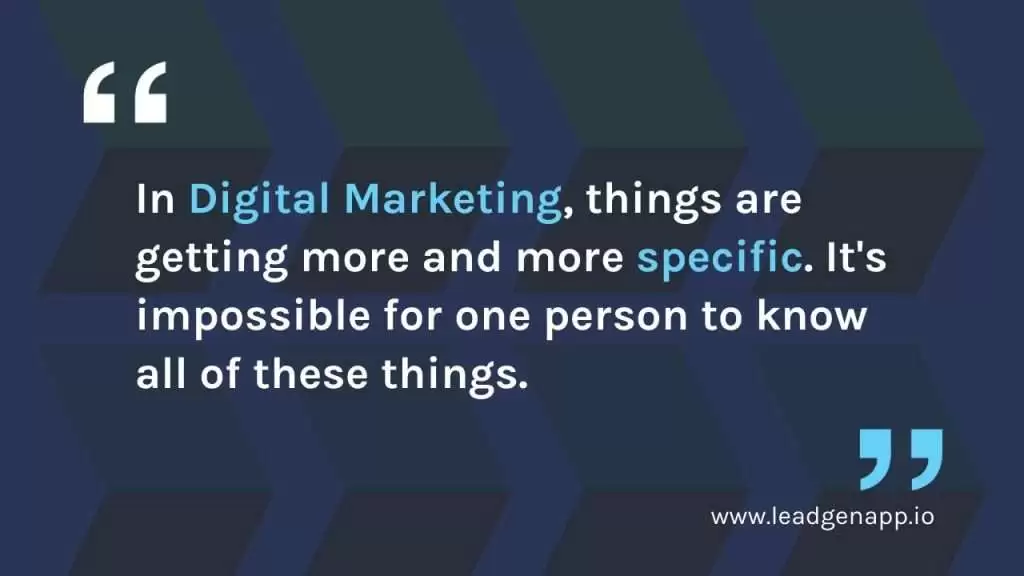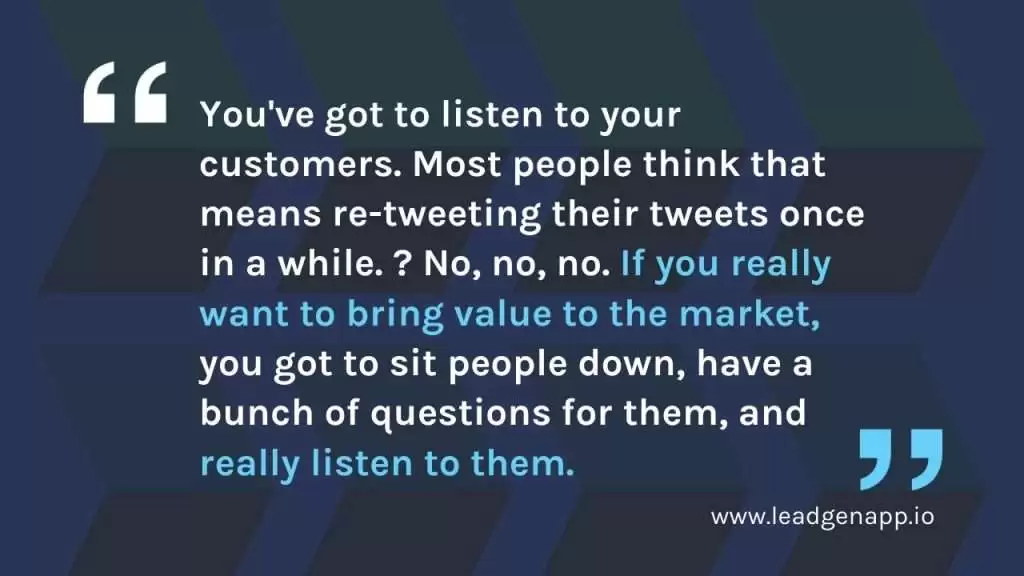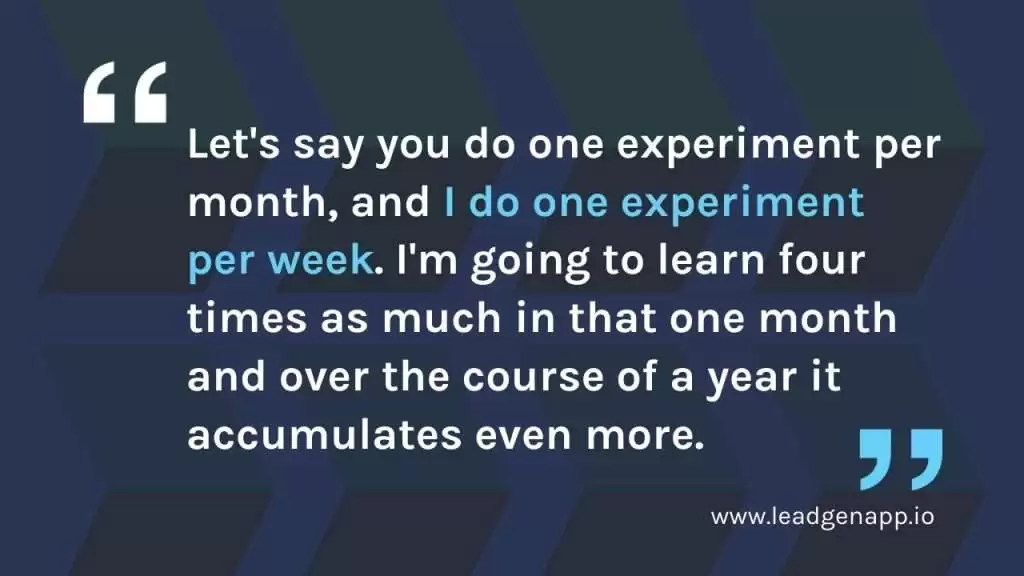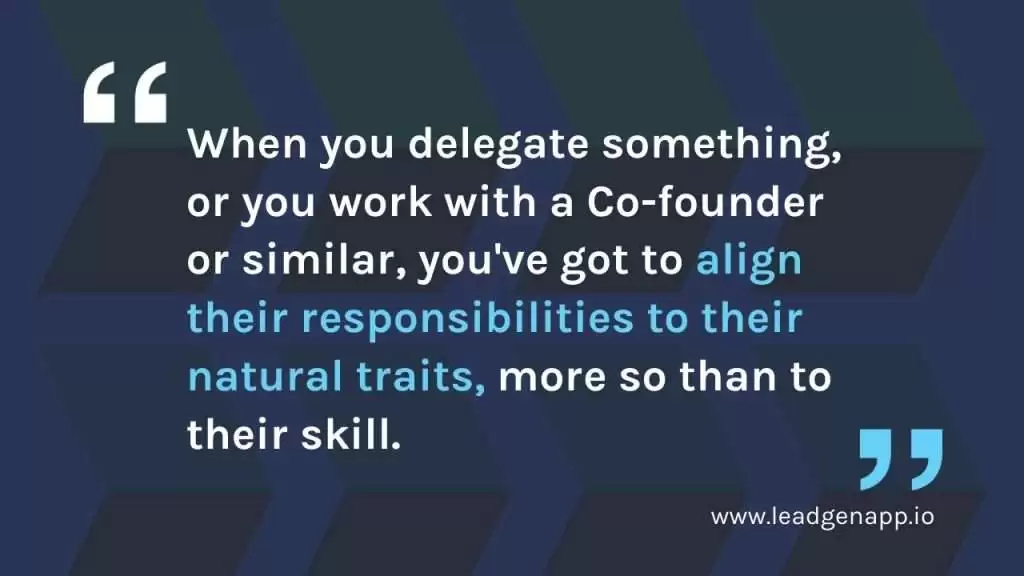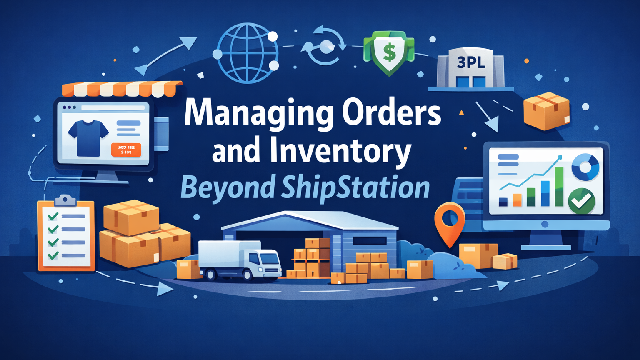How to Bring Value to the Market and Grow with Experimentation and Marketing Frameworks?
Answers By Stapho Thienpont
Stapho Thienpont Interview with LeadGen App
Speaking with Stapho Thienpont from the Marketing Family was a real pleasure. Growing up in Bulgaria, he went off to explore the world as a competitive Jujutsu athlete.
His passion for psychology got him into marketing which he turned into a business in 2017. Today, Stapho Thienpont is specializing in content marketing and growth hacking for businesses via social media, particularly LinkedIn.
He helps companies with trackable, repeatable and robust social media strategies. Also, he is the host of TMF Picnic, a weekly Live show with thought-leaders on marketing.
Below, you can find the whole audio transcript to read. Enjoy!
Transcript Of Interview With Stapho Thienpont
TK: Hello. My name is TK, Co-founder and CEO of Polygon Students.
Chris: Hi, my name is Chris, I'm the Co-founder of LeadGen.
TK: Today we are joined by Stapho Thienpont, who is a marketing wizard in every sense of the word and understands better than anyone else how to tell your story in a noisy social world. He is the co-founder of The Marketing Family where he helps turn CEOs into thought leaders.
So, I am not just going to tell you how much I think Stapho is amazing, I'm going to share with you some recommendations from some founders that he's worked with in the past. So here we go. "Stapho is a guy who's going places because of putting the client first, continually experimenting, and he's open to share value to his growing community. I've learned and applied his tips and see more results and leads from LinkedIn." Awesome. Well Stapho, welcome to Founder Friendly.
Stapho: It's great to be here. I had some technical difficulties on my end, but I'm happy we persisted through. It's very nice to hear people say all these nice things about me, but I hope I can back it up by giving some good advice today and sharing some of the stuff I pick up along the way.
Inbound and outbound marketing - Stapho Theinpont's quote on differences
One thing I'd like to add is that my main expertise is B2B lead generation and B2B thought leadership. So one way or another we get people leads, B2B leads. I would like to use combination of outbound and inbound. That's one of the things that I think is so important for people doing B2B marketing is that you need to have some stream of inbound happening and some stream of outbound, because the one works a little bit faster than the other one, but the inbound usually gets you better quality leads. That is one thing I'd like to add. It's super nice to be here. I always like talking to you.
Stapho Theienpont's Story
TK: Always, always. Awesome. So I'll start. So, really believe that you have a pretty interesting story in terms of how you came to be where you are now. If you'd like to tell our audience about the first 18 years of your life.
Stapho: So when I was I think 19 or something, I dropped out of college because I figured that they didn't know what we're talking about, because I was studying nutrition. I was always been so obsessed with all the science. And then when I was looking through my courses I just didn't see the true science reflected. So I didn't get along so well with my professors, but I was... I talked a lot of shit to them. They were not appreciating this.
But at the same time I had already been training jujitsu for a while, being competitive. Like for example, I filled my whole bedroom just with jujitsu mats, so that I could spam all my friends every day to come down for him and me because I was trying to train like two, three times a day already.
But when I dropped out of college, I just moved to Stockholm. I didn't even warn my parents, I was just like... I was there. I was like "Yo, I'm going to stay here." And when I was there, I lived in the gym, slept on the mats for a while, and I competed all across the globe. So I was competing a lot in Europe, like in Greece, France, Germany, Holland, UK. But I was also competing internationally a little bit. I was competing in LA for example.
But I figured out that it's all fun and games to train for jujitsu like this. But I figured that I wasn't ultimately bringing so much value in the marketplace. Ultimately I was getting better at beating people up. That's nice for me to have some skill, but I didn't feel like that was really my purpose. So I went back to square one and I figured, "Okay, what is something that I've always been good at or been interested in?"
And I'm super interested in psychology because my, my dad and my stepmom are both psychologists, and my mom, she's been very much into like self-help and stuff or whatever. She had like a meditation practice sort of thing. So I figured, I like psychology and like building systems. So what I'm going to do is I'm going to get a bit of marketing.
So I started just reading everything I could about marketing and then sharing my lessons online on my Facebook group. And people started to really resonate with that and started to reach out to me to help them with marketing, and help coach them, and all this kind of stuff. And just from there organically start to grow. And then I got into like this basically secret, this community of LinkedIn marketers. People doing both content and outbound, and just learning from the very best in the game at that point.
Stapho Thienpont quote on LinkedIn thought leadership
And I figured out like, "Okay, a lot of people, they can do a little bit of LinkedIn for themselves, but they really suck at turning it into a framework and making it something that's repeatable by other people." It's the same as like you have a super hot girl on Instagram and she'll tell you like, "Oh, growing on Instagram is easy. All you got to do is post once a day, and make little bit of this kind of post and that kind of post and you're going to grow." But ultimately that helps if you have certain attributes. But people with different attributes are going to have to play different kind of games.
So I figured out that for LinkedIn I knew the underlying framework of making it work so that I could take clients and take their strengths and use that to grow their business, get them leads, and get them the thought leadership that they wanted to. And then I figured out since I have this framework now, I might as well turn it into a business. I moved to Sofia and started my marketing agency, The Marketing Family here. And I guess that's like short version, medium length version of my story.
Marketing Trends: Data & Testing
Chris: Awesome. Also Stapho, welcome from my side, great to get in contact to you. So what's interesting for me, because I'm also in the marketing field, so I'm in online marketing, very active. On your LinkedIn banner, you have the statement, "Marketing has changed, change, don't get left behind." So I just wanted to touch on that. What specifically would you say has changed in marketing, and also specifically for founders what are tactics they should get ready for, to cope with these changing environments?
Stapho: Look, ultimately marketing hasn't changed. You get attention, you have a good value proposition, you give people a call to action, and they have a way to buy your stuff. That stuff is constant. This is the people from the Mad Men area. That stuff is still happening.
Stapho Thienpont quote on how digital marketing has been changing.
The biggest change is that we now have data. So it's not just, "Hey, let's put a Banner there and yeah, we did some good marketing now guys. We're great, we're doing marketing." It's not like this anymore. Now it's like, "Okay, I built a landing page, let's get some traffic to it and see what happens." And then you change that landing page a million times, until the landing page is a good landing page. And then you have people growing in your follow.
The thing is, one thing that has been changing over the past few years, or a better way to say it, there has been a constant, constant change over the past few years. And that is that things are getting more and more specific. You have ad marketing is one thing. You have social media marketing is a whole different thing. You have the whole SEO thing is a whole different thing. And within all of those, you have the super tiny, tiny, tiny, tiny little areas of expertise. And it's impossible for one person to know all of these things.
Like not even Gary Vaynerchuk knows all the tactics and all the strategies and all platforms, right? So ultimately if you want to win on a specific platform, you need to have somebody that is basically only working on that specific platform. Because it's so hard to stay up with the changes. If there's black hat stuff going on, or gray hat stuff going on, you're not just going to find on a website. So you need to have like an inside man. You need to know the founders of the tools, and all that kind of stuff.
So, one of the things I'm trying to say with that is just, it's getting so specific and it's changing so fast and so much, they need to have somebody on the insights on the specific area of marketing. They're just like tried to make work for your business.
CL: Yeah, makes sense.
Stapho: Another implication of this is just that since everything is changing so fast, you need to have an overarching framework that allows you to pick and choose your tactics, right? You can't just be like, "Oh, I'm going to do LinkedIn and my business going to be successful." No, you got to have your overarching framework.
I think for startups, which I think is most of the audience that you're going to have here, the growth hacking framework, using rapid experimentation, using pirate metrics, all this kind of stuff. I think that is the gold standard right now, and it's going to stay the gold standard for a while.
But I also think there's other frameworks that are a little bit more old school that we should not lose track of. For example, I'm a huge, huge fan of the system B2B marketing developed by André Skagervik, which is actually what I've been helping TK apply for his business. The system B2B marketing framework is just basically the old school marketing, but by going scientifically through every step.
Okay, so you start out figuring your segments. Then you figure your ideal customer profile. Then you do your competitor analysis. Then you build your USP. And only then you start working on the other stuff like, "Okay, which strategies are we actually going to use?" And I think as things get more complicated and more specific, these overarching frameworks get more and more and more important.
That's why I teach my guys in my agency and I tried to work on my clients were like, "Look, we're going to start out with the basics. Which market segment do we want to work?" How do you pick a market segment? You analyze different segments and see which one is going to be more profitable, which one's growing, which one's not growing, all this kind of stuff.
Then we figure out the individuals and blah, blah, blah, blah, blah. I think this old school kind of marketing is being forgotten, or at least it's not sexy. But I think it is so important, more important than ever to just work on the big picture before getting caught up in like, "Oh, I'm going to do podcasts. Oh, I'm going to do Twitter. Oh, I'm going to do LinkedIn." That's the end of the roads, okay? Or it's also the beginning of the roads, but you start with the basics of the basics first. And that, yeah, that's, I guess, my answer.
Market Validation and Importance of Customer Feedback
TK: So obviously you work with early stage founders, myself being one of them. And I can imagine it being a big struggle, and obviously I've experienced this before and I'm sure that you've had this as well, Chris, in the past where when you're just getting started, it's like you don't know where to start. Obviously you've mentioned all the amazing frameworks that you've taught me in particular that can help you sort of create the path towards building content that really works, and having a strategy that really works. But what do you think are the biggest mistakes that people make when they don't know where to start? That you see a lot in your clients when they just take you on essentially.
Stapho Thienpont on the biggest mistakes in digital marketing
Stapho: I would say that the biggest mistake... So most people, they will have the understanding that they got to validate the products. So they got to make some people pay for it before they're going to do like super crazy funding or super crazy, amounts of money into the marketing. So validation is super important, but most people do that.
I would say that once you've validated your product, not actually interviewing your customers. Or not actually listening to your customers. Because everybody's talking about this, right? You've got to listen to your customers, you got to listen to your customers. Most people think that means re-tweeting their tweets once in a while. So it will be like, "Hey, do you like my products?" "Yeah, sure. Your product's fine." "Okay. Amazing! Next person." Right? No, no, no. I don't believe that's good.
I mean it's good. It's part of it for sure. But I feel that if you really want to bring value to the market, you got to sit people down, have a bunch of questions for them, and really listen to them. And you do this with a bunch of people so that you know, "Okay my customers, this is what they care about."
And then you look at your competitors and you see what are they talking about, and what are they not talking about that I do know my customers care about? And then that's where you got to go. Just like a super basic stuff, right? Like just interviewing your customers. I think that's a huge, huge mistake is not doing that.
Online Communities: Facebook, Reddit, Slack, Telegram
Chris: Yes. So, and then if you look closer into the field of SaaS companies, software as a service companies, and also marketplace models that are specifically just on online channels. So that really you focus a lot on online user acquisition. Maybe some traditional channels as well. But if you're just in the online field, what would be your advice on getting the first hundred customers into your tool? First hundred paid customers.
Stapho: This one's going to sound a little bit basic, but I think a really good place to start is figure out the community they are trying to sell to. So ultimately your target audience, ideally they get together in specific communities, right?
So for example, for TK he is working with students, right? But not just students. He's working with people that are exchange students. So, those people get together in communities. And my advice would be to become a part of those communities and just individually talk to these people one by one and understand the community as a whole. And then sell to that community.
And the reason I would recommend to do this first is just because it's always so important to be part of a community, because community, they refer within themselves. They refer their friends to go check something out. And just being a voice there is so important.
For example, I've used probably, let's say like 70% of the different LinkedIn tools. There are some tools that nobody's ever heard of that are better than almost all of the other tools. But why is nobody talking about them? Because they at no point made an effort to get into the community.
And one example would be if you were going to talk about LinkedIn automation, just as an example, is the Josh Fechter, one of the greatest growth hackers of all times, he wrote an ebook, where he was like, "Hey, this is how we can use Growth Leads to get all these leads." Growth Leads is great. I use Growth Lead with my clients. But then you have another tool called VConnect, which basically does all the same stuff except for the Zapier integration, plus it has CRM functionality. And nobody's ever heard of it, even though it's exactly just as good. Growth Lead managed to infiltrate the community and become a staple household name. While VConnect has so far not been able to do that. Does that make sense?
Chris: Yeah, makes sense. And quickly adding to that, what would you say could be a community? Would you say it could be a Facebook group, as an example?
Stapho: Yeah, Facebook groups are great. Reddit's, sub-Reddits are great.
Sometimes it could be a specific person's audience. So if you figure out somebody that has an exact target audience as you, working together with them, or getting them to promote it is another way to get into community. LinkedIn groups are slowly making a comeback. For some stuff it could literally just be an Instagram hashtag. Like you have some hashtags that you put there because somebody told you to put them there. Then you have some hashtags where there's a culture around them, right. You could even use 4Chan if you have made a fucked up enough product for those people to care about it. Wherever people get together online works.
Chris: Yeah, that's great advice.
Stapho: And also Slack groups. There's public Slack groups and there's Telegram group conversations. One of the first time I managed to sell to a bunch of people at the same time was actually selling in group chats that I was part of. I think group chats are way undervalued.
For example, even my jujitsu gym has a group chat of like 250 people. And I know a guy there and he sells them... Well he's my friend, and he sells acai, which is some kind of frozen berries that jujitsu people love to eat. He's in all those group chats, talking to them, sending some memes or whatever. But ultimately he's selling a bunch of stuff there too. So yeah, that's a good one.
Experimentation & Marketing Frameworks
TK: When it comes to setting out an effective marketing strategy, one of the things that you've been exceedingly helpful with me is understanding how to think about these things in almost the scientific method, whereby you're going through the process of experimentation, looking towards a specific result.
Why do you think approaching things from that sort of scientific method, like framework approach, is much more effective than when you just do what you said earlier, "Hey, we're just going to set up a Twitter page and start tweeting. We're going to go on Instagram and find some hashtags." Yeah. Why is it so much more effective to go at it that way than it is to sort of shoot blindly?
Stapho:So look, I'm not going to say this is the method for everyone. Some people it's almost as if they're talking to God and God's telling them what to do. Like it's crazy. Like some people, they have such an intense relationship to the markets, where they don't need to experiment. They can just feel it.
But I believe that especially if you're a startup that has funding, or a loan behind it or something along those lines, that you have responsibility to the people that have invested in you to take the most science-based approach. Just because if you do it science based, you can explain and justify every single step that you've taken.
Let's say you do a little experiment, right? You're doing rapid experimentation and you experiment on Facebook ads, right? And in those two weeks you've said, "Look, this is the result that we want to achieve. This is how we know it's successful. This how we know it's not successful." You've had like 20 different ideas, and you score them with a buy score so you know which one was the best one to test. And then you put let's say 1000 bucks in it and it works. Then you can go to your investors, go to your team and you can say, "Look, the data clearly indicates that this is something that we should test further or just take another step in.
Stapho Thienpont quote on rapid experimentation in digital marketing
I think that's a really big part. It's just you can justify everything that you do, and you take out all of your biases. And there's a framework there, not only how to test if it's correct or not, but there's also a framework to figure out what should you actually test first. And I think that's huge. That's all incredibly, incredibly important.
The next thing is, ultimately the way our market is now it's all about our intellectual property, let's say, and the technology that we make and our expertise and this kind of stuff. If you learn more things than your competitor, that means you actually have a larger capacity to bring value to the market.
But if you can learn, let's say you do one experiment per month, and I do one experiment per week, and then somebody else who's good at math can explain this, I'm going to learn like four times as much in that one month and over the course of a year that accumulates. I'm not going to embarrass myself by doing the math at hand right now. But really like if you can calculate how much more you're learning, not only you learning more stuff, you also use the things that you've already learned to educate your new experiments, right?
So if you've done 20 experiments, you have 20 facts about things that work and don't work. That you never have to try again. Or maybe you could, but you just have the facts. This has worked for us, this has not worked for us, and so probably we should go a little bit in this direction. While somebody else, they have no idea.
If they're not running experiments at all, they might even think that something's working when it's not. And they're wasting all this money doing things that don't even work. And they don't even know. And they put their finger in the air and they guess like, "Okay, this is a good thing. Let's do more of this." While the data indicates something else. I hope that kind of answers your questions.
TK: Beyond answered, yeah. Very good, yeah.
Delegation and Focus
Chris:So Stapho, you work with lots of entrepreneurs, right? Like startups particularly, startup founders. What would you say is the thing that you see over and over again, where startups do something where you say, "I see this mistake over and over again, this is something that you guys should fix in your business"?
Stapho:I don't really think you're going to like this answer so much. But one thing I see a lot is that they suck at delegating. So, so they wake up five o'clock, they do a one hour Carefree meditation, fucking ready to hustle. Can I swear here? Because I've been swearing a lot.
TK:Yeah, we can edit it out :)
Stapho:So I love Carefree, don't get me wrong, but you know, you get up, you pump yourself up for the day, and you're like, "I am going to hustle. I'm going to do so much stuff today." And then they do a lot of stuff. They sure do. But there are also stuff they're not doing. They're not sleeping. They're not taking care of their health. They're doing stuff that they really shouldn't even be doing, stuff that could be delegated for cheap. Stuff that actually nobody should be doing in the first place. And they start and they have a hard time focusing on things that actually matter. Right?
So they have a hard time on doing the design work. They have a hard time making sure that the strategic stuff is in place. They have a hard time doing the work that they have a gift for. And I think that's a very common mistake. I guess it's not a business or marketing mistake, but it is just something I see and
I have suffered from it too.
New Social Tools and Super Apps
TK:Yes, that one definitely hit close to home. Awesome. So now we're coming into an age where it almost seems as if the platforms that exist now are the dominant ones. Well, I think almost 5, 10 years ago as we were moving from TV to online, we were at a point whereby there was something new emerging every couple of years. Snapchat came out, and then marketers had to learn how to use Snapchat, Twitter, so on and so forth. Is there any emerging platforms that you see now that are essentially like a wide open space for whoever learns how to market on them will essentially win?
Stapho:Well one that's been growing pretty rapidly is Telegram. Although I guess by now it's like a household name. But people that have never used Telegram they might not be aware yet. You have group chats with like 5,000 people in them. Something like this.
TK:Yeah.
Stapho:If you don't understand that there's 5,000 people, and I might be saying the wrong number so somebody can talk shit to me afterwards. But if you don't understand that there's 5,000 people in there that could get a notification if you say something, and they know who's who in the community, and they know who to listen to. If you don't understand how much potential there is there to build relationships and sell stuff, you're crazy.
Also in China they have this thing called WeChat, right? They have super apps. It's basically you have one app on your phone and it does everything. So we don't have that. We don't really have that in the west yet. I guess Facebook is getting closer. I guess you could even say Google is kind of doing it, but not really though.
And I talked to the people that are doing this in India. So they're also getting a super app. I think we're getting a super app. Why wouldn't we get a super app if everybody else got a super app, right. I think that's going to be a huge opportunity to marketers.
Then the voice stuff is pretty big as well. Like if I ask my Google to buy me something, my Alexa who is actually in charge of what it's going to buy for me? I can be like, "Yo, give me some toilet paper," and it'll get me a specific toilet paper. And it's going to be in my house in a week, or in a day, even, if it's in my Prime. Who's deciding what I'm getting? Right? There's a huge opportunity to market there.
I haven't really been paying attention too much to super-new platforms. I'm sure there's some stuff going on there that I'm not aware of. I pay mostly attention to functions within established platforms that I can work with. For example, I'm very excited about getting LinkedIn Live. So I'm still working in the same feed as everybody else. But I know the algorithm favors things of Live over regular posts now. I'm also excited about LinkedIn groups, although I haven't really done so much with it yet.
So I get excited about platforms that already have a billion users implementing a new feature that I can make use of to grow my business and my client's business.
TK:Yeah. Awesome. Amazing.
Stapho Thienpont quote on delegation in startups
People and Talents
Chris:All pretty interesting to me too as a marketer, all these different new opportunities. That's pretty exciting, what you said. So speaking about your own journey as an entrepreneur, what would you say was a struggle, or something that hit you by surprise? You know, something that just kind of got you out of your routines and everything and was like a surprise on your journey that you didn't plan for.
Stapho:I think one surprise has been that when you delegate something, or you work with a co-founder or similar, is that you've got to align their responsibilities to their natural traits, more so than to their skills a lot of time. I'm not talking about like super-technical jobs, like an engineer. If you're coding in Python, your engineer's got to know how to code in Python obviously.
But the more soft stuff, it's more than just having the skill to do something, it is having like a natural affinity to do it, and also enjoying doing it. So we had people in our company where they were good at what they were doing but it didn't give them the little glimmer in their eyes. So you can see every week they looked a little bit more sad. And you're like, "Why are you getting so sad?" And they can't really put their finger on it.
But it turns out that you put somebody in a role where they have to communicate all the time, but they're actually more introverted so they don't like talking to people all the time. Or they'll have to work with a lot of numbers because they have some accounting degree, but ultimately they're more interested in strategic side and not so much in doing the calculations.
And I had definitely underestimated how much this would impact the whole company. Because if one guy is getting frustrated and depressed because he's doing stuff that he's good at but he doesn't want to do, or it doesn't give him energy, that also leads to frustration with everybody else. Results go down. People start getting angry with each other. That's been a big one for me.
TK:Yeah. Never thought about that. So what would you say is the cure for that? Because then there's also this school of thinking about where it comes from the fact that, "Hey, we're an early stage company. Unfortunately you're probably going to have to do some things that you don't enjoy." So where do you draw the line between having people do things that they're passionate about and things that give them energy, and doing things that to get done?
Stapho:I think a lot of it is about getting together with them. And understanding their big picture vision, right? The classic question is where do you want to be in five years or whatever, right? And come to an agreement with them about what could be a future for them that they could be excited about?
So it could be like, "Look, I need you to do accounting for another year, but then we will be able to outsource this. So what do you want to do after this year?" "Well, I want to figure out how to use YouTube. I want to learn how to do all the hacks. All the hacks, I want to do all of them." And like, "Okay, so maybe not after one year, but in two years I think we could turn your position into something where you're figuring out new hacks full time. Right? So let's make a plan, within one year I will get this responsibility away from you. You will only do this. Plus you will take on this other job. That's a little bit shitty, but it's a little bit more fun. A year after that you're going to be working on this exact thing that you want to work on." Right?
So it's not just like, "Hey, you don't like doing this as cut it out." You can't usually do that, but you can make a plan, like, "Okay, let's get you 20% of the work time that you do, let's make it something that you enjoy doing. And then let's work towards 50%, work towards 70%." So that their personal vision of their life is aligned with the company vision and vice versa.
TK:Yeah.
Driven by Data: How To Set Marketing Goals
Chris:I think that's, that's a very, very important. So what I like about what you said is that you use quite scientific frameworks for how you work, and strategies, and so on. How would you go about goal setting? Can you share with us the process of how you would set goals for your business, also for a client's business?
Stapho: Yeah, so I want to be like a fake guru. Not everything you do is the most as scientific as it could be. For me it's more of a goal of working towards doing a little bit more of the data driven approach every month. It's like I see the ideal of doing things structured from start to finish. I see the ideal of running experimentation and split testing exactly like you're supposed to do it, and making sure that, do you have enough numbers so that the data is real and that kind of stuff. And every day you work a little bit more towards this goal. But I wouldn't want to sit here and lie to you and say that everything we do has a super strong method behind it. Though we are super-strategic and we do look at the data. I don't want to scare people away either.
So you set an objective and you're like, "Okay, so this is our big goal. It's a little bit fuzzy." You know let's say an objective could be, "Generate more leads for our clients." Or, "Double our business." Something like this. And then you add measurable components to that.
So like, "Okay, how do we know if we're adding more value to our clients?" Well if you double the amount of discovery calls they have, if they get featured in this many podcasts, and this blah, blah. So you have something a little bit fuzzy, and then you have like three, or five, or whatever, key results that are yes or no. So that you can say objectively, "I've managed to achieve 70% of my goal."
And so I think the OKRs are good. But I'd like to add that you've got to keep in mind the result that you're trying to create, okay? So a lot of people get caught in the doing, right? You have your to-do list, and there's a bunch of stuff on there and because it's higher on the to-do list, you should probably do it first. That's not true.
You've got to you can only do so many things today. And ultimately what are you trying to have as a result that day? Today my results were that I want one of the discovery calls I'm doing today to go to proposal stage, which happened. And I want to add as much value to both my coaching clients and the podcast that I'm on, you guys, I want to add as much value as possible. And then the third thing is I want to set a new 18 month plan for my business that I can follow.
These are the results I want. Everything else like, "Hey Stapho, can you check this? Hey Stapho, can you check that? What's up with that? Blah, blah, blah, blah, blah." That's all noise. That's busywork. Okay? Somebody should do it, and I'll do it after I've done my important stuff. But the first order of business is, what are results I'm trying to achieve today? What are the results I'm trying to achieve in three months?
TK:Yeah, amazing. That's great. Awesome. Well Stapho we can't thank you enough for joining us and sharing what I believe is an insane amount of value to everyone who's been listening. I just want to ask, anyone who's listening wants to reach out to you and have you turn their business around in the way that you have mine, where would they go to?
Stapho:Yeah, so since I've been so busy coaching people and doing client work. We actually don't have our website set up yet. So what they can do is they can reach out directly to me on LinkedIn. So it's just like Stapho Thienpont. There's only one Stapho, so it's not hard to find. Or they can join my Facebook group and ask a question there.
My Facebook group is The Marketing Family, and that's honestly the best way to get in touch with me. And soon enough I'll have the website to enable them to call.
TK: Amazing, awesome.
Chris: Thanks a lot from me as well. It was really interesting to speak to you, and to go deep into things like marketing. So yeah, I really enjoyed the conversation.
Stapho:Yeah, it was nice to meet you too. You're always smiling. I enjoyed it a lot.
TK:Awesome. Cheers guys.

